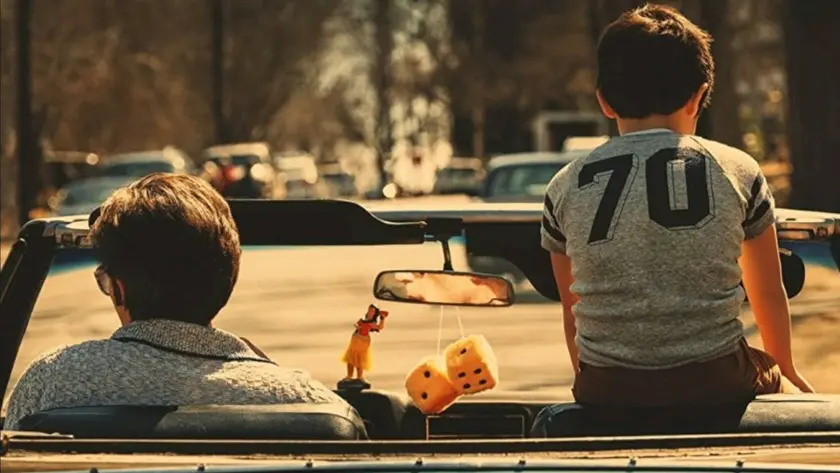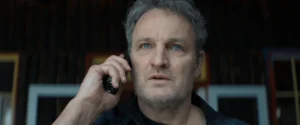Moehringer’s The Tender Bar: A Memoir chronicles growing up in a tiny hamlet of Manhasset, NY. Two actors play him in two different stages of life. One, as a boy, by YouTube sensation Daniel Ranieri. The other, as a young man, by Tye Sheridan (The Card Counter). (And narrated by Ron Livingston [Tully]).
The young boy’s name is JR. He is being raised by his mom (Lily Rabe, Fractured) in his grandfather’s home (Christopher Lloyd) and hanging out with his Uncle Charlie (Ben Affleck). All because of his absentee father, who left him while in the womb. JR has no idea what the loser looks like.
His uncle has an insatiable appetite for reading, and he passes it on to his nephew. He runs a bar named after his favorite author, Charles Dickens. Not that JR realizes it, but he is the father figure he doesn’t know he has. Charlie is always there for him and guides him through life’s most challenging moments. That includes those pesky breakups. He was making sure his grades were high. He kept his spirits up during his mother’s cancer scare. Perhaps, most importantly, he wants to make sure he goes to college like he never could.
By the film’s end, JR is graduating from Yale University. He found a temporary job working for his dream assignment, the New York Times. And most importantly, he finally stood up to his abusive, alcoholic father (Max Martini, The Order). However, he did not land that full-time job at his dream paper as a young man. (They felt he needed more experience). The final scenes have his Uncle Charlie giving him the keys to his car. His Uncle and his patrons, a team of father figures, wave goodbye as he starts his new job at a smaller paper.
You’ll notice, during all the turmoil in JR’s life, the pressures of Yale, being consistently betrayed by his would-be girlfriend, and the trauma of child abandonment, he is relatively well adjusted. Perhaps most importantly, he reacts to setbacks and disappointments with a sense of maturity. This would not have been possible without being raised by the village he found at his Uncle Charlie’s bar.
Abandonment can be a trauma that leads to stunted growth in a child’s psychosocial development. Or, at the very least, delay a proper transition into the identity versus identity confusion stage, which is very important in a teenager’s growth. Not to mention, a single-parent home can have a devastating impact on a child’s outcomes, such as lower achievement, more discipline problems, school suspension, lower high school graduation, lower college attendance and graduation, increased rates of incarceration, and substance abuse.
You’ll notice throughout the film that JR never displayed those traits and achieved accomplishments most can only dream of. There are also many scenes where his friends comment on how Charlie is like a father to JR; he consistently blows it off or doesn’t even realize what is right in front of him.
The effort Charlie, his family, and friends put into raising JR the right way never let him veer off the straight and narrow path of success. (Remember the great scene where Charlie tells his nephew, rather bluntly, watch the drinking?).
Many critics and others do not embrace this point about The Tender Bar. They question why there is no real point to the film or story. The explanation needs to be explained, and it’s relatively simple but just as important.
JR never really questioned who his father figure was because he never had a chance to miss it. He had it the entire time. A village raised him, or in this case, a tiny hamlet in upstate New York.




